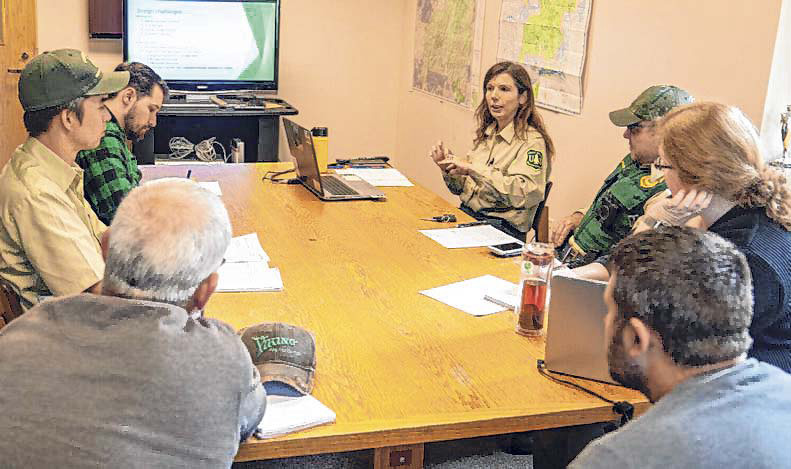
U.S. Forest Service offices in Portland charged with wildfire prevention, scientific research, forestland management and conservation across the Northwest would be shuttered and moved out of state under a new plan announced by the head of the U.S. Department of Agriculture.
In a July 24 memo, Brooke Rollins, head of the agriculture department that oversees the Forest Service, outlined an agency restructuring plan that includes closing all nine regional Forest Service offices across the country — including the Region 6 headquarters in Portland — and moving their functions over the next year to five “hub locations.” Those are: Fort Collins, Colo.; Indianapolis; Kansas City, Mo.; Raleigh, N.C.; and Salt Lake City.
The Forest Service’s 100-yearold Pacific Northwest Research Station in Portland, along with six other research stations across the country, are also slated to be closed and consolidated, with their functions moved to the USDA hub in Fort Collins, according to the memo.
“Implementation activities will take into consideration the ongoing fire season,” Rollins wrote.
The number of employees working for the U.S. Forest Service Northwest Region Headquarters is unclear and agency spokespersons did not provide a number via email. There are roughly 246 permanent, full-time employees, mostly scientists, employed by the Pacific Northwest Research Station, according to its website. Offices for both are located in Portland. It’s unclear if employees would be able to keep their jobs and relocate or if there will be cuts.
In an email to the Capital Chronicle, an unnamed USDA spokesperson for the Forest Service Region 6 office said Rollins’ announcement last week was a “first step.”
“Some aspects of the reorganization will take place over the coming months, while others will take more time,” they wrote.
Oregon’s senior U.S. Sen. Ron Wyden, a Democrat, called the plan “inane” in an email, and said he would fight it.
“You don’t have to look at a map to know that Utah and Colorado are hundreds of miles away from the Pacific Northwest and thus much less accessible on the ground to Oregonians’ needs,” he said. “This latest Trump administration proposal shutting down the Oregon office for the Forest Service takes direct aim at quality of life in rural Oregon.”
Restructuring
Rollins said the restructuring was meant to cut agency spending by moving staff to cities with a lower cost of living and “refocusing its (USDA’s) core operations to better align with its founding mission of supporting American farming, ranching, and forestry.”
The five new hub cities were chosen for their “existing concentrations of current USDA employees,” a lower cost of living than D.C. and to “ensure USDA is located closer to the people it serves while achieving savings to the American taxpayer,” she wrote.
Impact
Officials at the Oregon Department of Forestry have not been in conversation with USDA or Forestry Service officials about the proposed changes, according to spokesperson Joy Krawczyk. She said moving the offices out of Portland would be inconvenient but not detrimental to the collaborative work between the state and federal agencies.
Tom DeLuca, dean of Oregon State University’s College of Forestry, said students at the college work collaboratively on projects and research with staff from both the U.S. Forest Service Northwest Headquarters and the Northwest Research Station. Many students end up going on to work for the Forest Service after undertaking studies with federal scientists and staff.
DeLuca said closing the Oregon offices and moving their functions out of state would likely make that collaboration more difficult, and more expensive. He said these are costs that would also be borne by Northwest foresters, who would lose the technical support and ongoing research and monitoring work that offices do to improve forest ecosystems, study pests, boost timber production and respond to a changing climate.

